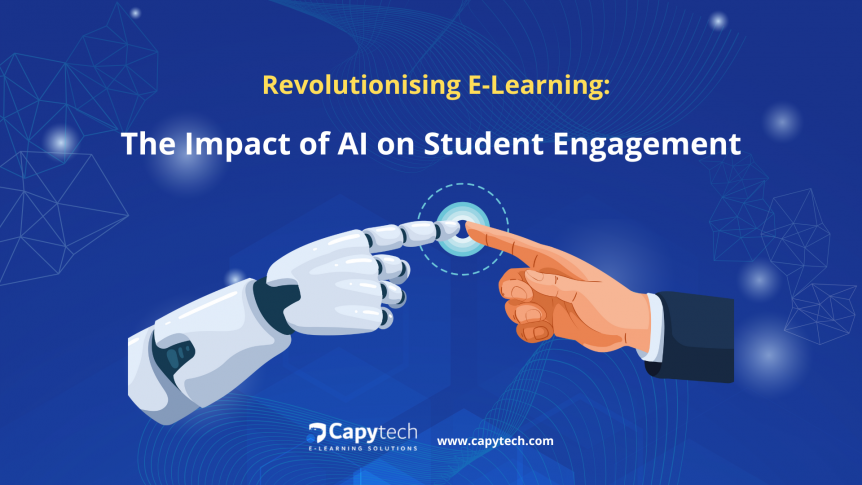Revolutionising E-Learning: The Impact of AI on Student Engagement
The realm of e-learning is undergoing a transformative phase, with Artificial Intelligence (AI) at the forefront of this revolution. The integration of AI technologies into e-learning platforms and strategies is not just an enhancement; it’s redefining the way educators teach and learners engage with content. This post explores the profound impact of AI on student engagement within e-learning, drawing connections with immersive learning spaces, multilingual education, feedback collection, and more.
Creating Immersive Learning Experiences
One of the significant ways AI is revolutionising e-learning is through the creation of immersive 360 learning spaces. Just as these spaces have extended beyond traditional learning paradigms by offering interactive environments that simulate real-life scenarios, AI is enhancing these virtual spaces to be more adaptive and personalised. This not only keeps students engaged but also improves their understanding and retention of the material.
Enhancing Feedback Mechanisms
Feedback is a critical component of the learning process, providing learners with insights into their progress and areas for improvement. AI’s role in gathering module feedback has streamlined this process, making it more efficient and effective. By leveraging AI for feedback collection and analysis, educators can now offer real-time, personalised feedback at scale, thus significantly enhancing student engagement and learning outcomes.
Breaking Language Barriers in Tutoring
AI is also making strides in breaking language barriers in tutoring. By integrating AI-driven language learning tools and translators within e-learning platforms, learners from various linguistic backgrounds can now access and engage with content more effectively. This inclusivity not only broadens the reach of e-learning but also ensures that language is no longer a barrier to education, thereby significantly boosting student engagement.
Leveraging Scenario-Based Learning
Scenario-based learning is another area where AI is making a significant impact. By creating dynamic, interactive scenarios that adapt based on the learner’s responses, AI enhances the effectiveness of scenario-based learning. This method provides learners with a safe environment to apply their knowledge, make decisions, and see the consequences of their actions, thereby fostering a deeper understanding and engagement with the material.
Quality Assurance and Personalised Learning Paths
AI’s role in e-learning is not limited to content delivery and feedback mechanisms. It also extends to quality assurance in e-learning development projects. AI algorithms can analyse vast amounts of data to identify patterns, predict learning outcomes, and suggest improvements to the e-learning content, making it more engaging and effective.
Moreover, AI facilitates the creation of personalised learning paths by analysing learners’ performance, preferences, and engagement levels. This personalisation ensures that each learner is presented with content that matches their unique learning style and pace, thereby maximising engagement and effectiveness.
Conclusion
The integration of AI into e-learning is transforming the educational landscape, making learning more engaging, inclusive, and effective. From personalised learning paths and immersive learning environments to enhanced feedback mechanisms and the breaking down of language barriers, AI is at the forefront of this educational revolution. As AI technologies continue to evolve, we can expect even more innovative approaches to e-learning that will further enhance student engagement and learning outcomes.
The future of e-learning is here, and it is AI-driven. By embracing these technologies, educators and learners alike can unlock new potentials and redefine the boundaries of what is possible in education.
